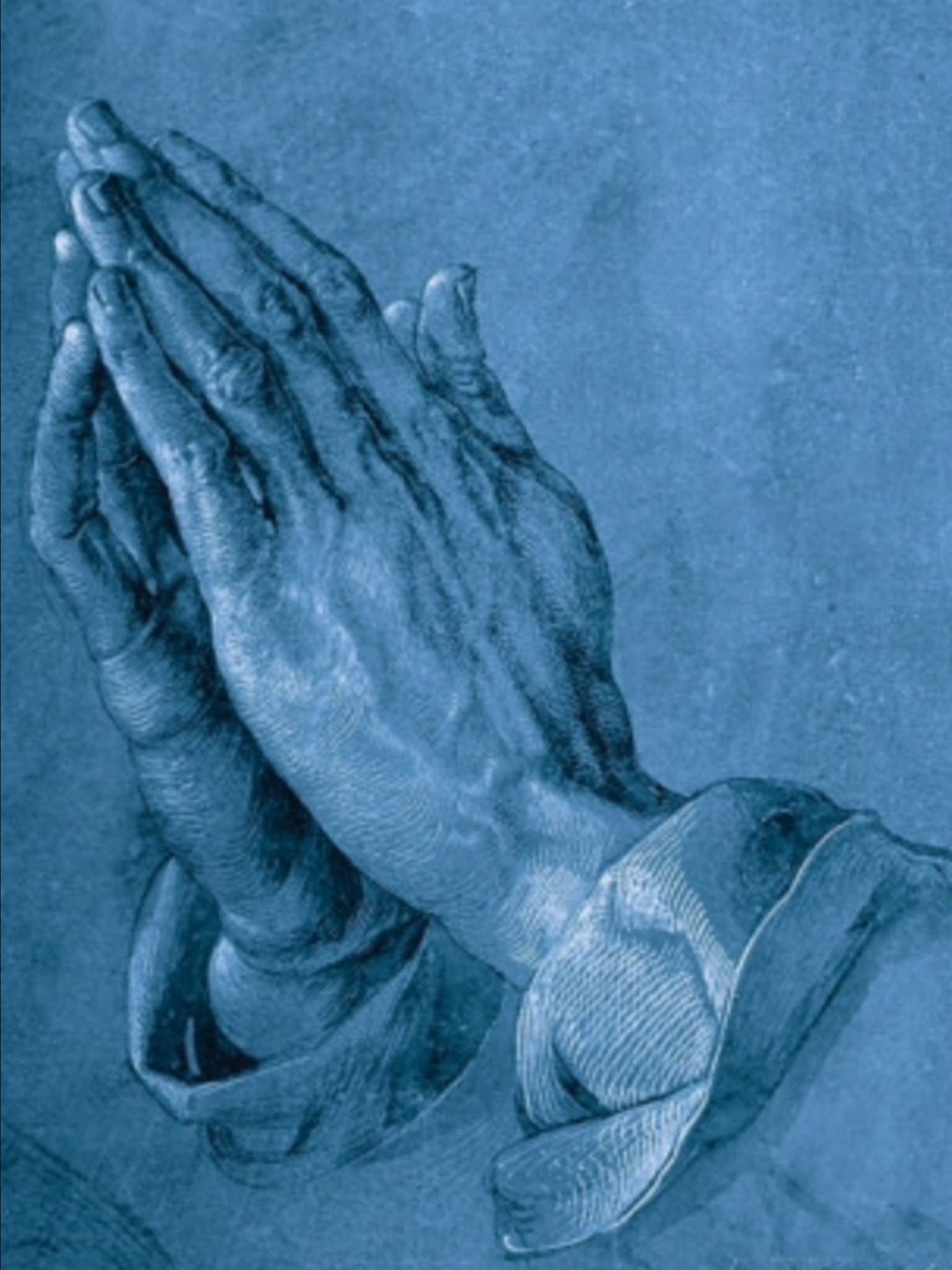by Rev. Mark Bestul

As recorded in Luke 11, the disciples ask Jesus to teach them how to pray, and he does not respond with comments about posture or attitude or sentiment, but with specific words that serve as a foundation on which all Christian prayer is built. When Luther taught Master Peter the Barber to pray, his teaching can be summarized as beginning with the Lord’s Prayer, meditating upon one petition of it, and allowing that petition to serve as the basis for any further exposition of prayer from the heart. As prayer is so central to daily life, this understanding of the Lord’s Prayer as ‘foundational’ for prayer spills over to the Christian’s entire life. Consider the layout of the Catechism: If the Ten Commandments teach the Law and the Creed teaches the Gospel, then the Lord’s Prayer teaches daily Christian life in that Law and Gospel. So, let us follow Luther’s lead and meditate upon the Lord’s Prayer, as it is taught in the Catechism (both Large and Small):
The Introduction: “Our Father who art in heaven”
- In his introductory comments in the Large Catechism, Luther says, “God does not consider prayer because of the person, but because of His Word and obedience to it” (para. 16). A few paragraphs later, he continues, “We should be more encouraged and moved to pray because God has also added a promise…” (19). How does this concept – that prayer is not based on our worth, but on God’s; that “He is our true Father and that we are His true children” (Small Catechism, Introduction)—both humble the proud and bolster the doubting?
The First Petition: “Hallowed be Thy name.”
- “it may be… among us also” – This phrase (or similar ones) appears in Luther’s explanation of each of the first three petitions. How does this remind us that being baptized into the Triune name does not mean Christians are ‘masters of the things of God,’ but are those who constantly need spiritual care and guidance in daily life?
- Luther says that the plainest way it can be said that God’s name is kept holy among us is “When both our doctrine and life are godly and Christian” (Large Catechism, para. 39). How does this help us understand that “doctrine” is not merely found in books, but also ‘lived’ in daily living?
The Second Petition: “Thy kingdom come.”
– Do we tend to think that praying “Thy Kingdom Come” is primarily a “future tense” request for the Second Coming? How does Luther’s explanation teach us to treasure the present-tense work of the Holy Spirit through the Word and Sacraments, so that we cherish His Word in our daily life and the Divine Service as the pinnacle of our week?
The Third Petition: “Thy will be done on earth as it is in heaven.”
- If the first petition is about doctrine, and the second is about the Means of Grace, the third petition is described by Luther as a prayer that God defend us from “everything that seeks to oppose and prevent the fulfillment of the first two petitions” (para. 61). How does this understanding teach the Christian to understand that the baptismal life is not always going to be easy, but that “If we would be Christians, therefore, we must surely expect and count on having the devil with all his angels and the world as our enemies” (para. 65)?
The Fourth Petition: “Give us this day our daily bread.”
- “…but we pray in this petition that God would lead us to realize this and to receive our daily bread with thanksgiving.” Do we “realize” that our daily bread comes from God? Consider passages such as Matthew 6:25-34 and James 1:17. And, even when we do begin to “realize” this, do we receive it with proper “thanksgiving”? Consider the crowds in John 6, who only followed Jesus because they “ate [their] fill of the loaves” (6:26). How does Jesus, in the next verse, instruct the crowds to receive daily bread with thanksgiving?
The Fifth Petition: “And forgive us our trespasses as we forgive those who trespass against us.”
- We can get confused by the second phrase of this petition, “as we forgive…”, and think that God’s forgiveness is in response to a good deed of forgiveness. Consider the parable of the unforgiving servant (Matthew 18). How does Luther show a right understanding of that when he concludes, “So we too will sincerely forgive and gladly do good to those who sin against us”?
The Sixth Petition: “And lead us not into temptation.”
- In this petition’s meaning, we read of that well-known trio of enemies, “the devil, the world, and our sinful nature.” In the Small Catechism, Luther admits that these should be an expected part of daily life: “Although we are attacked by these things…” and that our only source of certain strength in such daily trials is prayer and depending upon God’s Word. Read Ephesians 6:10-18, and consider Luther’s warning: “If you try to help yourself by your own thoughts and counsel, you will only make the matter worse and give the devil more space. For he has a serpent’s head. If it finds an opening into which it can slip, the whole body will follow” (LC, para. 111).
The Seventh Petition: “But deliver us from evil.”
- “We pray in this petition, in summary, that our Father in heaven would rescue us from every evil of body and soul, possessions and reputation.” How do Luther’s words imply a “well-rounded” picture of things spiritual and things temporal, of “doctrine and life”? Additionally, how does the second half of the explanation teach us not to judge God’s love of us by how things are going now, but rather by what promises God has given and sealed for us in the death of Christ?
The Conclusion: “[For thine is the kingdom and the power and the glory forever and ever.] Amen.”
- As godly as the doxological conclusion is, even more important is that little word, Amen. How does Luther’s commentary on this little word give you comfort that prayer is a most comforting tool for daily Christian life in Law and Gospel?
God grant you much joy in ever learning how to meditate upon and pray the divine words of the prayer by which our entire Christian life is daily guided!
The Rev. Mark Bestul is pastor of Calvary Lutheran Church in Elgin, IL.
